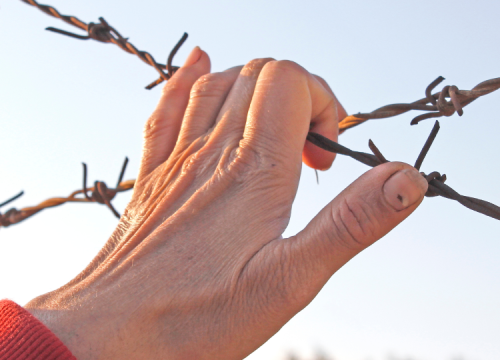Recognition of Gender Apartheid as an International Crime: Significance and Challenges
Event


Adobe
The term ‘gender apartheid’ has been in use for decades; over the last two years, the use of the term and calls for gender apartheid to be recognized as a crime against humanity have become louder and more insistent. Initially arising from the Afghan and Iranian civil society, these calls have been joined by South African anti-apartheid activists, international legal experts, United Nations experts, and a phalanx of notable figures, including Nobel Peace Prize winners Malala Yousafzai and Narges Mohammadi.
Proponents of codifying the crime of gender apartheid assert that the regime of systematic domination and oppression institutionalized by the Taliban in Afghanistan, like that of the South African regime before it, has laid bare a gap in the legal framework, this time located within the definition of the crime against humanity of apartheid. The failure to codify gender apartheid has curtailed the international community’s capacity to accurately define this distinct crime, characterized by its unique animus and structure, and ensure accountability for its occurrence. As a consequence, it is posited that there is a gap in the ability to hold perpetrators–both State and individual–to account for the totality of the crimes they have committed, and to recognize and repair the distinct and often transgenerational harms suffered by victims of gender apartheid.
Last year, in light of the prevailing inhuman acts based on gender experienced by women in Afghanistan and Iran, a campaign advocating for the codification of gender apartheid under international law and recognition of gender apartheid as an international crime emerged. Since then, there have been a report and statements by the UN Special Rapporteur on the situation of human rights in Iran, the UN Special Rapporteur on the situation of human rights in Afghanistan and the Working Group on discrimination against women and girls that described the situation in these two countries as gender apartheid.
This panel will address crucial questions surrounding the necessity of a legal framework for gender apartheid under international law. It will delve into the significance of such a concept and explore how the crime of apartheid (whether race- or gender-based) is distinct from other international crimes including gender persecution. Moreover, it will explore how the crime would be indicted in practice, including for a wide variety of victims and survivors, including individuals of all sexual orientations, gender identities, expressions, and sexual characteristics.
Moderator
- Shima Esmailian, PhD candidate in Law at the University of Geneva Law Faculty and Teaching Assistant at the Geneva Academy
Panelists
- Sareta Ashraph, Senior Legal Adviser, Center for Justice and Accountability and US Holocaust Memorial Museum and faculty member, Geneva Academy
- Madeline Rees, British lawyer and Secretary General, Women's International League for Peace and Freedom (WILPF)
Drinks
This event will be followed by drinks.
Disclaimer
This event may be filmed, recorded and/or photographed on behalf of the Geneva Academy. The Geneva Academy may use these recordings and photographs for internal and external communications for information, teaching and research purposes, and/or promotion and illustration through its various media channels (website, social media, newsletters, annual report, etc.).
By participating in this event, you are agreeing to the possibility of appearing in the aforementioned films, recordings and photographs, and their subsequent use by the Geneva Academy.









